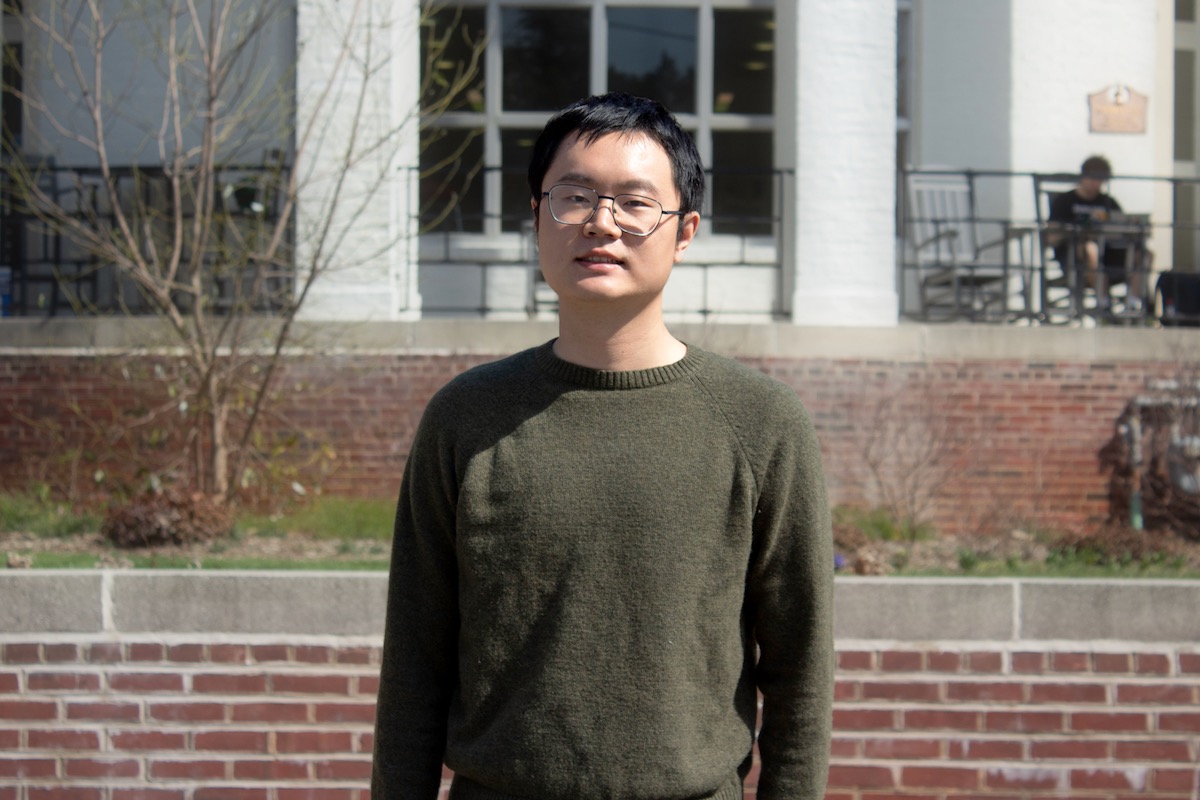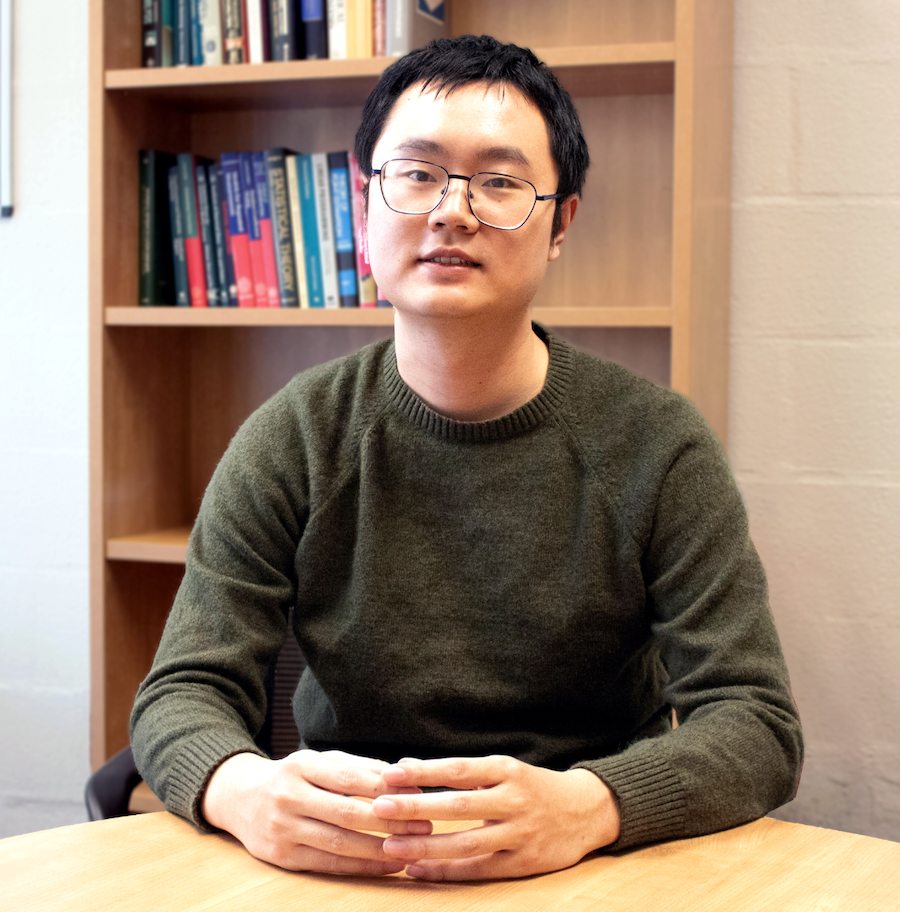
Category: Applied Economics and Statistics

Meet our new faculty: Peng Zhao
April 01, 2024 Written by Molly Schafer
Peng Zhao is attracted to the human aspect of statistics.
One of 11 new faculty members in the College of Agriculture and Natural Resources this academic year, the University of Delaware assistant professor of statistics in the Department of Applied Economics and Statistics uses statistical methods to analyze complex datasets.
“For example, when studying how genes influence certain diseases, we often deal with high-dimensional structures that have many genes but very few patients,” Zhao explained. “Developing variable selection techniques that detect important genes would be helpful.”
Zhao also focuses on developing models for more complex datasets using similar techniques in high-dimensional statistics.
“The ultimate goal is to improve healthcare outcomes for patients and enhance our understanding of biological systems,” said Zhao.
These goals cannot be achieved by computer science alone.
“Statistics is different from computer science,” stated Zhao. “Computer science targets how the computer understands and processes the data. In statistics, we might build simpler models, but these models help us, as human beings, to understand the data.”
Certain fields require data that can be read by humans, not computers. The pharmaceutical industry is one example.
DSI has helped me to meet researchers in related fields like data science and computer science. Next, I need to find collaborators within the College of Agriculture and Natural Resources.
“Before the U.S. Food and Drug Administration (FDA) can make a decision on a new medicine, they need to understand the drug’s effect on illness or disease,” Zhao said. “So they ask a statistician to perform statistical inference on their data set.”
Understanding the medicine’s positive and negative effects and accounting for the placebo effect is detailed work.
“It requires stringent statistical inference to ensure the medicine is indeed having a positive effect,” Zhao emphasized.
“Statistics help us to understand what data looks like. What is the description of the data, and how do we understand the data? It is important that the data is understandable by people, so people can make careful decisions based on the data.” Zhao underscored.
Another example is the insurance industry.
“If an insurance model was designed using a black-box machine learning model, we cannot confirm if the price was raised only for a specific target of people,” Zhao said. “We need a simpler model to make sure other people can understand this model, that there is no discrimination and that it is a fair model.”
For UD graduate students, Zhao teaches Mathematical Statistics (STAT602) in the spring semester; in the fall, he especially recommends students register for his Regression Analysis (STAT611) course.
“Regression analysis is one of the most important topics in statistics,” emphasized Zhao. “It targets the relationship between two sets of variables, the response variable and predictor variable. In real life, data sets have correlation, everything is correlated, so to discover the correlation and also try to interpret the correlation between the variables is quite interesting.”
Regression analysis is useful for variable selection problems.
“You could have a thousand variables to predict one response variable,” Zhao said. “But if you can use variable selection techniques, you could select twenty important variables from that thousand. That’s very powerful, it helps you detect important vectors for your research or your analysis.”
Zhao enjoys teaching cases that display the statistical phenomenon known as the Simpson Paradox.
“In this phenomenon, the conditional correlation may not be the same as the overall total correlation,” Zhao elaborated. “For example, if I show a scatter plot between response and predictors, and for each piece of the data, we see a decreasing trend, but the overall data on average is an increasing trend.”

The big-picture conclusion is different from what each individual piece of data implies.
“That can be a hard moment because a student may not notice this difference between the overall effect and each piece of the causation effect,” said Zhao.
Zhao is looking for collaborators across the University. You can find him in his Townsend Hall office, where his work is well underway.
In addition to his appointment in the Applied Economics and Statistics, Zhao is a resident faculty member of UD’s Data Science Institute (DSI), which aims to accelerate research in data science by encouraging interdisciplinary collaborations.
“DSI has helped me to meet researchers in related fields like data science and computer science,” Zhao said. “Next, I need to find collaborators within the College of Agriculture and Natural Resources.”
Zhao and several DSI colleagues have applied for a grant from the National Science Foundation under the Division of Information and Intelligent Systems. He is applying for additional grants and will recruit graduate students to work with him.
Zhao is also open to collaborators outside of UD. Zhao and a colleague from the University of Houston recently applied for a grant from the National Science Foundation under the Division of Mathematical Sciences.
